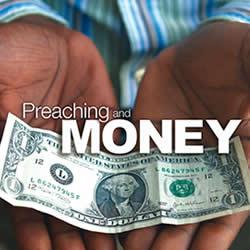I sometimes get asked if I believe in “Once Saved, Always Saved.” One reader recently sent in this question:
Can a Christian lose their salvation?
The old saying is once saved, always saved.
I have two ways of answering this question, both of which are stated below.
1. Why I do NOT Believe “Once Saved, Always Saved”
The reason there is so much debate over this statement is because of the word “saved.” As I have written about on numerous times previously, the word “saved” (and other related words such as “save” and “salvation”) are used in a variety of ways in the Bible. When you do a study of the ways these words are used, it quickly becomes obvious that the vast majority of them have absolutely nothing whatsoever to do with anything related to gaining or keeping eternal life.
 So, for example, the word “saved” might refer to being delivered from one’s enemies, or getting healed from a sickness, or being rescued from drowning at sea. Obviously, these words are not related to gaining or keeping eternal life. I would guess that the majority of times the words saved, save, salvation, etc., are used in Scripture, they are used in this way (e.g., Matt 8:25; Acts 27:31).
So, for example, the word “saved” might refer to being delivered from one’s enemies, or getting healed from a sickness, or being rescued from drowning at sea. Obviously, these words are not related to gaining or keeping eternal life. I would guess that the majority of times the words saved, save, salvation, etc., are used in Scripture, they are used in this way (e.g., Matt 8:25; Acts 27:31).
Another percentage of words refers to various ideas that are related to eternal life, but are not eternal life themselves. Often, the words in these contexts refer to some aspect of sanctification, or maybe getting rewards at the Judgment Seat of Christ, or some other related idea (cf. 1 Cor 3:15).
Finally, there is a tiny fraction (I would say less than 1%) of uses where the term probably does refer to receiving eternal life, though even in these contexts, the actual meaning of the word is debatable.
In Acts 16:30-31, for example, the Philippian jailer asks Paul and Silas, “Sirs, what must I do to be saved?” They answer, “Believe in the Lord Jesus Christ, and you will be saved, you and your household.” On the one hand, it seems that the jailer might have been asking about how to receive eternal life. But frankly, at this time, that may not have been the primary question on his mind. At that time, if a jailer let prisoners escape, the jailer would be tortured and killed. Maybe the jailer was not asking how to get eternal life, but how to be delivered (saved) from being killed by the authorities. This reading is possible. I am not sure how the jailer meant his question, and so don’t mind reading it either way. Besides, whatever he meant by it, Paul and Silas answer the most important question, which is how to receive eternal life: believe in Jesus for it.
There are a few other examples of places where the word “saved” could be understood as eternal life, or could be understood as referring to something else (Eph 2:1-10 is one), but these examples are less than 1% of the uses in the Bible.
But here is what happens. Most church-going people assume that the word “saved” almost always means “get forgiveness of sins so you can go to heaven when you die” even though it rarely means that. So when they come across a passage like 1 Corinthians 15:2 where Paul says the Corinthians will be saved only if they hold fast to the word that was preached to them. And people say, “See? If you don’t hold fast, then you aren’t saved? See? Once saved, always saved is false!”
Right. But what does the word “saved” mean in this context? Is Paul really talking about the concept of “forgiveness of sins, escaping hell, going to heaven when you die?” No, he is not. Paul is using the word “saved” in the same way he uses it in 1 Corinthians 3:15. The word “saved” in 1 Corinthians refers to reward and honor at the Judgment Seat of Christ. This is something Christians can lose.
So the question, “Do you believe in ‘Once Saved, Always Saved?’ is a trick question. There are numerous verses in the Bible which indicate that there are some things in our Christian life which can be lost, and these texts use the word “saved” to talk about how to be saved from losing these things.
So do I believe in “Once Saved, Always Saved?” No. I do not. This slogan is unclear, imprecise, and does not fit with many Scriptures which indicate that there are many spiritual blessings in the Christian life that can be lost.
2. Why I believe “Once Saved, Always Saved”
Of course, after saying what I have said above about “Once Saved, Always Saved” I always try to then answer the question that people are really asking. When people ask if I believe in “Once Saved, Always Saved” what they are really asking is if I believe that eternal life can be lost. That is, do I believe in eternal security?
And the answer to that is a resounding Yes!
 Once you see the difference in Scripture between the word “saved” and the terms “eternal life” or “everlasting life” or even something like “justification” you begin to see that while there are numerous verses which talk about saving something that can be lost, there is not a single verse in the Bible which talks about losing eternal life, losing everlasting life, or losing our justification. All of these gifts of God, once given, are never revoked or taken back.
Once you see the difference in Scripture between the word “saved” and the terms “eternal life” or “everlasting life” or even something like “justification” you begin to see that while there are numerous verses which talk about saving something that can be lost, there is not a single verse in the Bible which talks about losing eternal life, losing everlasting life, or losing our justification. All of these gifts of God, once given, are never revoked or taken back.
There is no place in the Bible that talks about getting unjustified, unsealed, unregenerated, unindwelled, unbaptized by the Spirit, or any such thing.
If everlasting life can be lost, it has the wrong name.
Yes, I know there are difficult verses in the Bible, and troubling passages (Hebrews 6 and Hebrews 10 for example), but with a basic framework understanding of what Jesus teaches about eternal life being given freely to everyone and anyone who believes in Him for it, and that since Jesus died for us while we were yet sinners there is no sin that can take away the benefits of His death from us, and dozens of other Scriptures which talk about God’s infinite, unmerited, outrageous, scandalous grace, the clear teaching of Scripture seems to be that once God gives eternal life to someone, they have it eternally.
Yes, yes, there are people who might abuse this idea. Yes, there are people who think they have eternal life, but don’t. Yes, there are lots of false ideas out there about what eternal life is and how to get it. I am not talking about any of that. All I am saying is that according to Scripture, if a person has eternal life, then they have eternal life eternally. They shall never perish!
So do I believe in Once Saved, Always Saved? You tell me! What are your thoughts about the saying, “Once Saved, Always Saved”?





 Even if you do not pray the way I have written above,
Even if you do not pray the way I have written above, 

 How do we know God says this to us, no matter what we say to Him?
How do we know God says this to us, no matter what we say to Him?
 In years past I have written about what the Bible says about getting paid to pastor, and especially getting paid to preach the gospel (Look on
In years past I have written about what the Bible says about getting paid to pastor, and especially getting paid to preach the gospel (Look on  Neil forwarded me an email that he got back from
Neil forwarded me an email that he got back from 



 2 Timothy 2:15 is a popular verse among pastors, Bible students, Bible colleges, and seminaries. In the King James Version, Paul instructs Timothy to “Study to show thyself approved unto God.”
2 Timothy 2:15 is a popular verse among pastors, Bible students, Bible colleges, and seminaries. In the King James Version, Paul instructs Timothy to “Study to show thyself approved unto God.”
 This post on Jesus’ parables is part of the August
This post on Jesus’ parables is part of the August  In other words, Jesus told parables to mask the truth, to hide it, to cloak it, to make it unclear. Jesus’ parables are supposed to be confusing! He wanted them to be confusing!
In other words, Jesus told parables to mask the truth, to hide it, to cloak it, to make it unclear. Jesus’ parables are supposed to be confusing! He wanted them to be confusing!
 In the previous posts in this series (sign up at the bottom of this email to receive all the posts for free) we have discussed methods for getting acquainted with our neighbors, building relationships with them, and having group events that will help all of us to get to know each other better. In order to avoid some of the common problems that can occur during this process, let’s look at some pitfalls to avoid.
In the previous posts in this series (sign up at the bottom of this email to receive all the posts for free) we have discussed methods for getting acquainted with our neighbors, building relationships with them, and having group events that will help all of us to get to know each other better. In order to avoid some of the common problems that can occur during this process, let’s look at some pitfalls to avoid.

